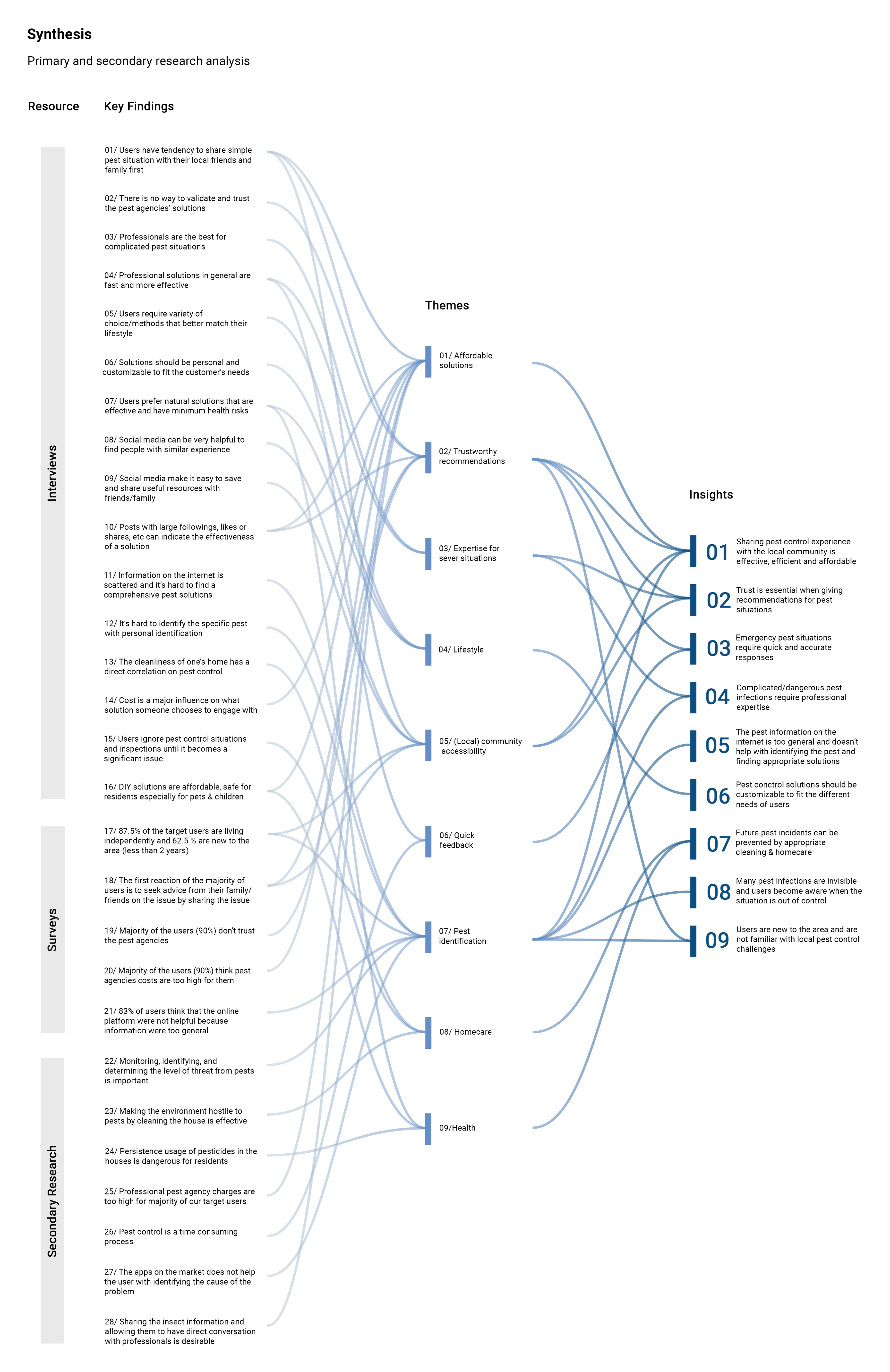Role I collaborated a team of 3, overseeing research and design for a project commissioned by a retired project manager from a pest control company. The goal was to create an innovative, pandemic-friendly pest control solution during COVID-19.Duration3 MonthsToolsAdobe XD, After Effect, Photoshop,Illustrator
PestO 01 | 2021
Introduction
Project Brief
Problem
In 2012, 84% of American homeowners faced pest problems. With limited resources and costly pest control services, many tried to handle issues themselves, but misdiagnosing pests often made finding the right solution impossible.
Challenge
The main challenge in this project was developing pest control solutions that were both reliable and practical.
Solution
The project aimed to connect people with valuable pest control experience to those without any background in the field.
Result
Our research showed that local expertise was often more effective and trustworthy than traditional pest control agencies. As a result, communities could rely on shared knowledge to address pest issues more efficiently. This project was later published as a paper to share these insights with other designers.
Research
What is Pest?
A pest is any animal or plant which harms humans, their food, or their living conditions. Pest causes:

The general cost for pest control by agencies:
$250 to $400
The inspection may occur 2 or 3 times per month. Each time costing about:
$40 to $45
Research
Market Research
We studied pest control applications and evaluated them based on their key features and the services they provide to users.
Research
Gaps
The Gaps in the Pest Control field
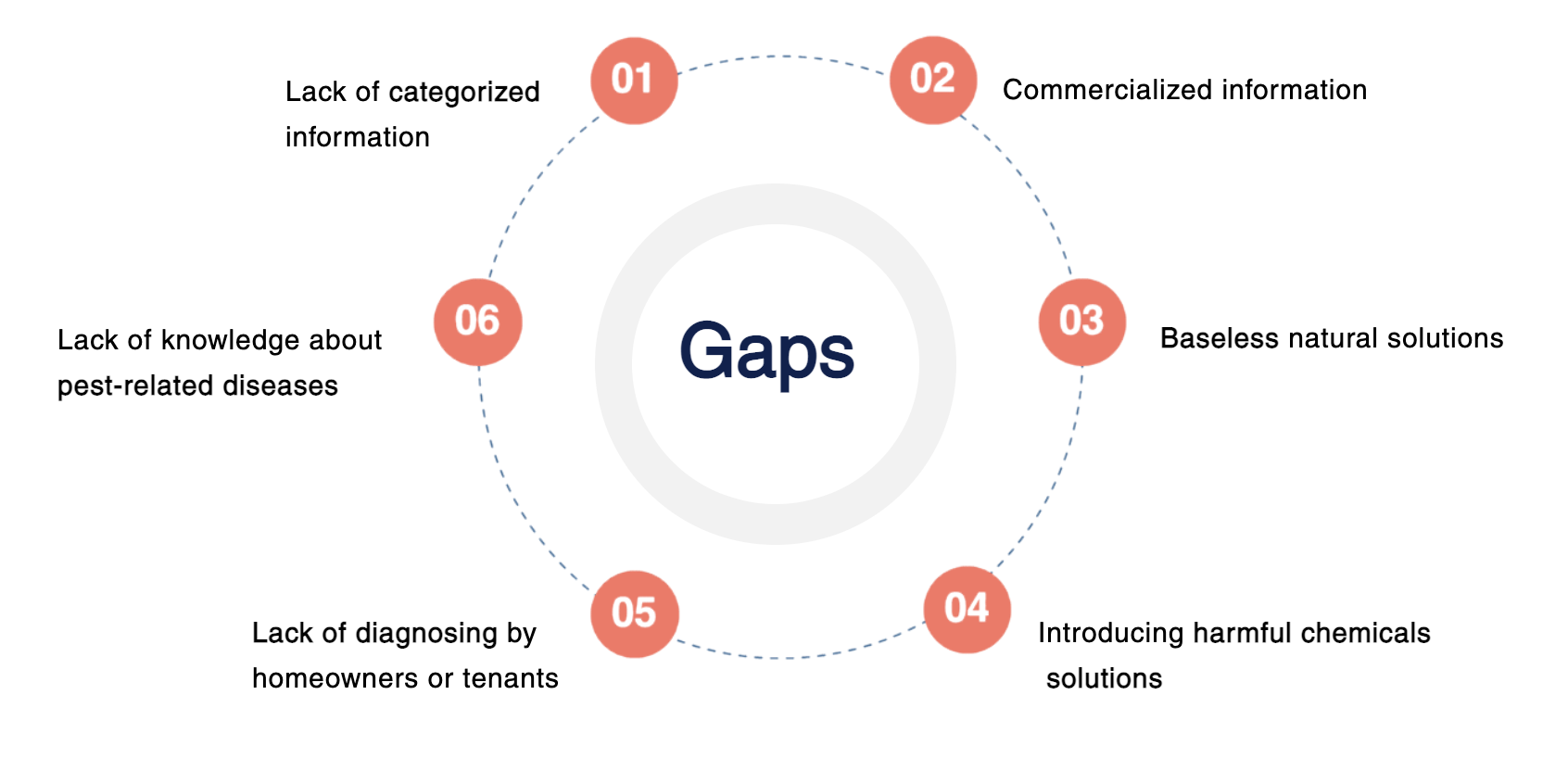
Research
Primary Research
Target Users
Our target users were students and young professionals between 18 and 32 years old who were living independently for the first time.
Survey
To gather first-hand insights on pest control, we conducted a questionnaire survey. From 31 participants, we collected 1,488 data points. The key results are summarized below.

Analysis
Survey
Demographic Results
Out of all 32 individuals who fill out the form 34.4% were students and 65.6% were employees.
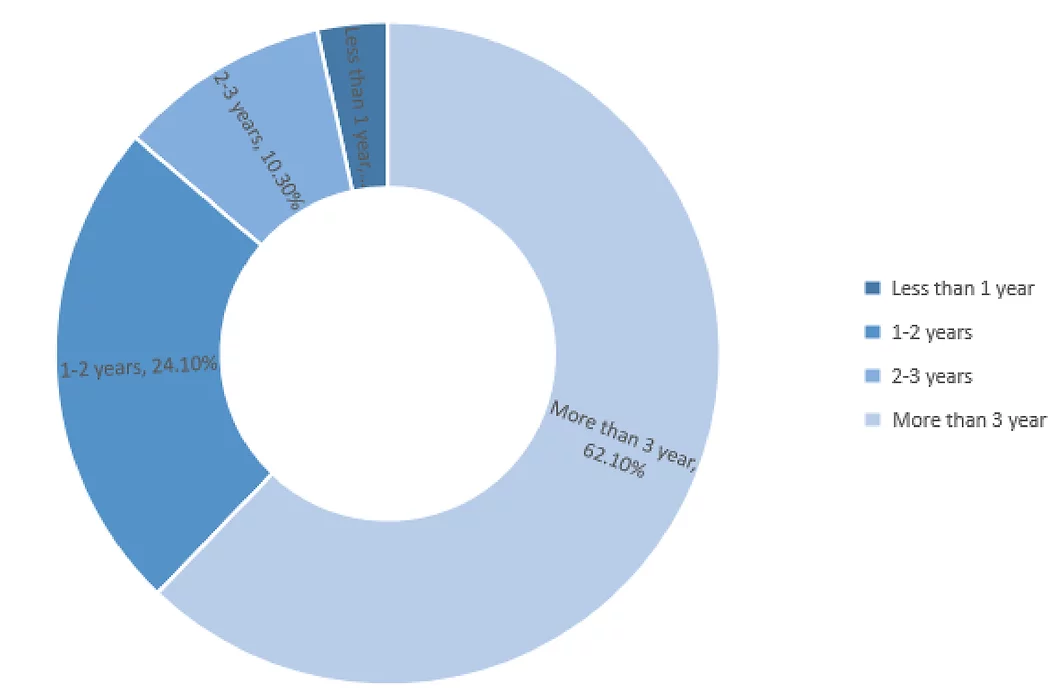
The survey shows that the majority - 62.5% - of the target users are living in apartments.
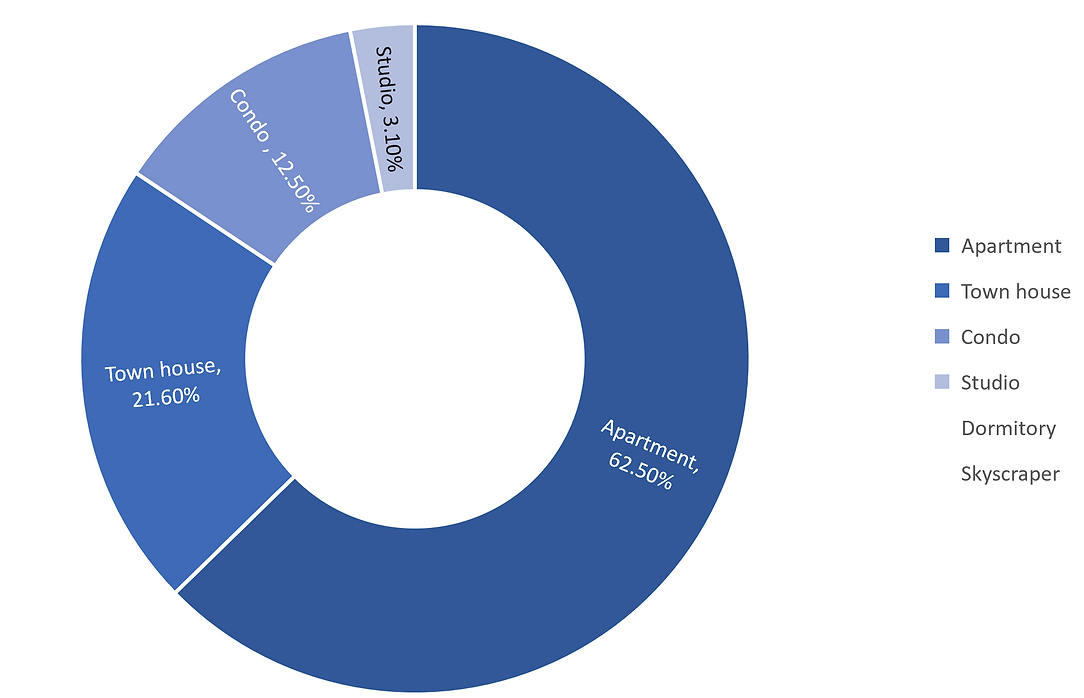
Also, based on the survey responses, the kitchen is considered as the hardest place for exterminating the pest.
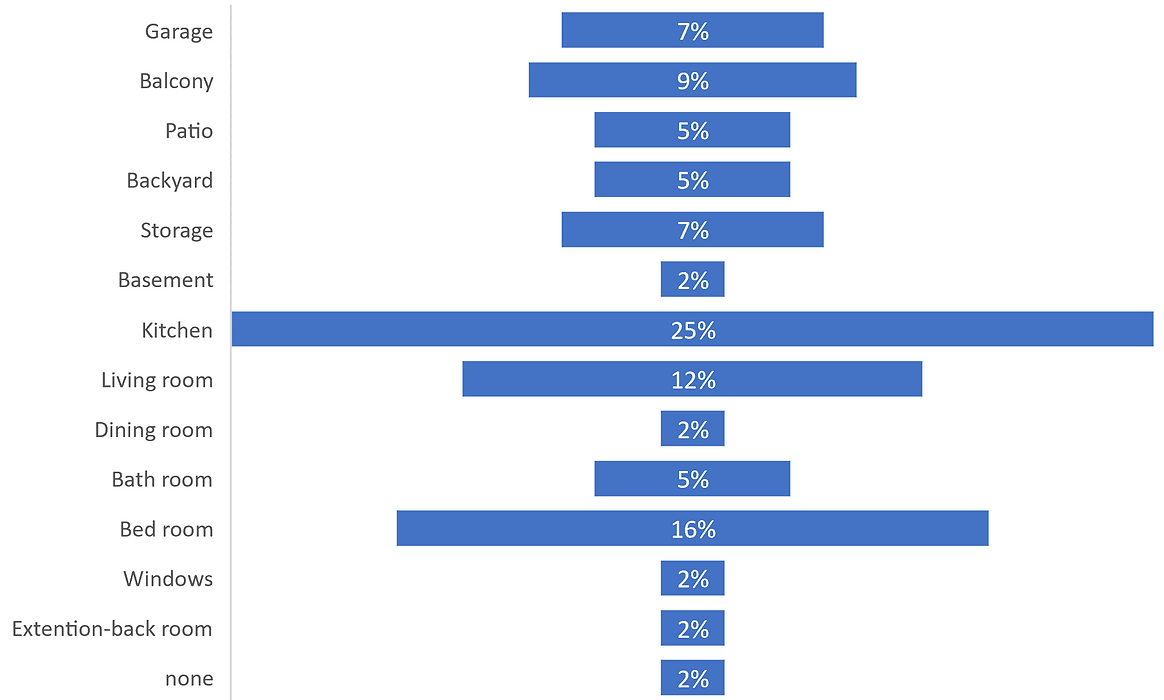
There are numerous signs and symptoms which the users figure out of the pest infestation in the house.
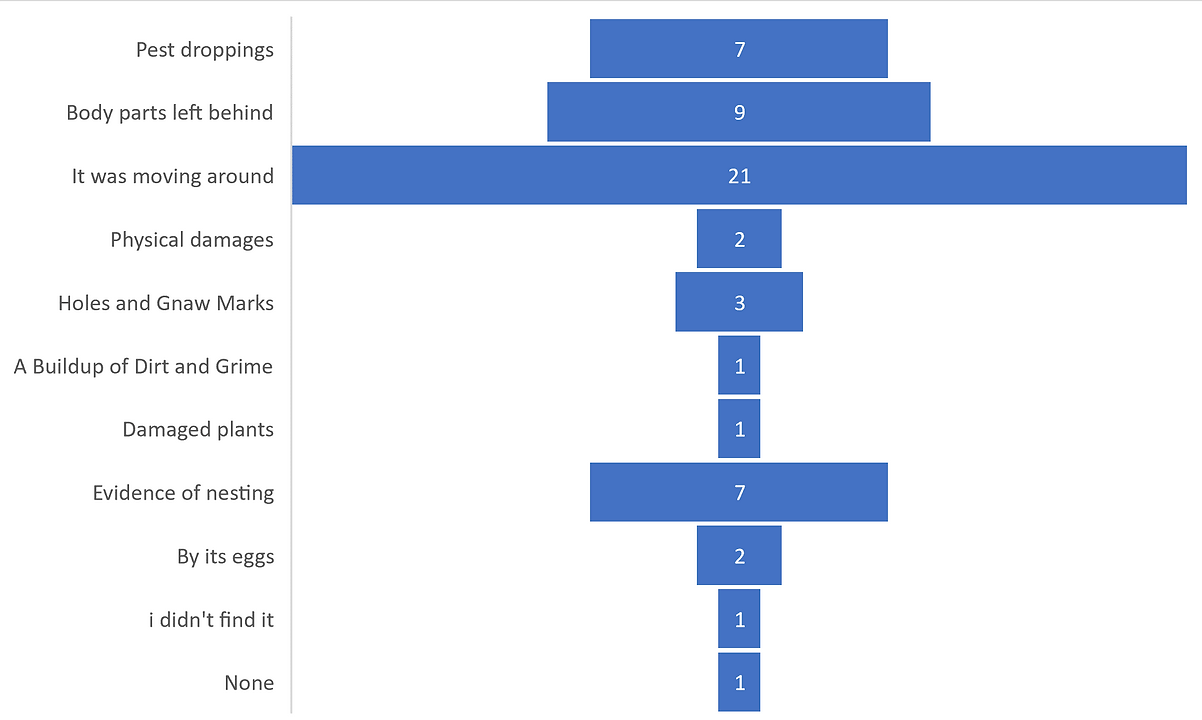
Users' Reaction to Pest Issues
The chart shows the first reaction of users to pest infestation.
Free of charge
Used a general pesticide
Searching through the website
Called a pest control agency
Went to retail stores
Used a pest control app
Lowering the room temperaturre
Called the landlord
Individuals
0
5
10
15
Based on the responses, 88.9% of users trust local advisors and 11.1% of them trust the pest control agencies. In addition, Chart 7 demonstrates their reasons of trust as well as the frequency of each reason.
Why users prefer the local advisors
Free of charge
Similar experiences
88.9%
11.1%
Prefer Local Advisors
Agencies
Efficient solutions
13%
Trustable
6%
Provide the best &
the most efficient ways
6%
Solutions are
professional & quick
13%
31%
31%
Analysis
Interview
To gain deeper insights into our target users, we conducted follow-up interviews with six students who had previously completed the survey. The analysis of these interviews is organized into three sections: Key Findings, Needs, and Insights.
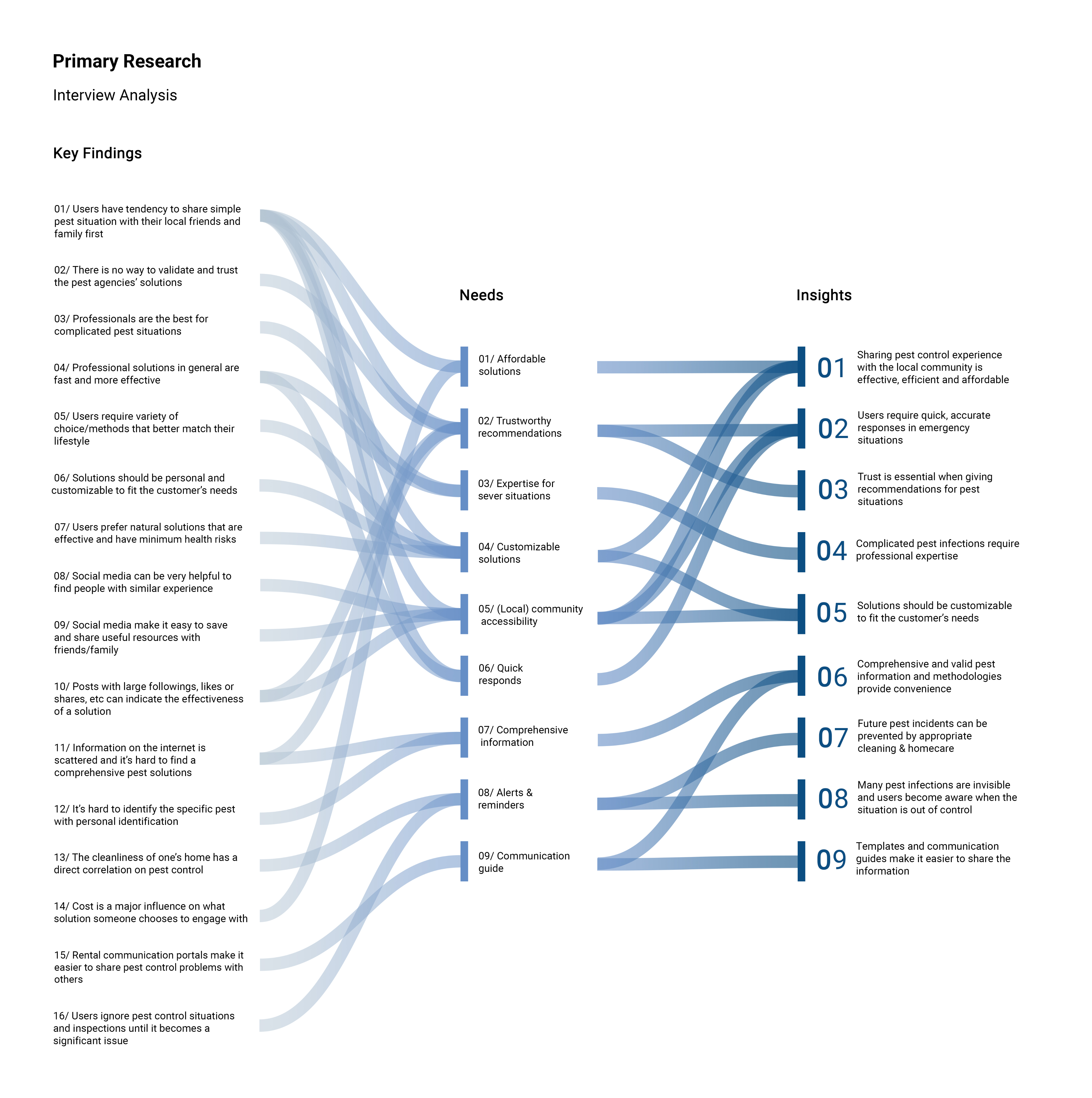
Ideation
Wireframes
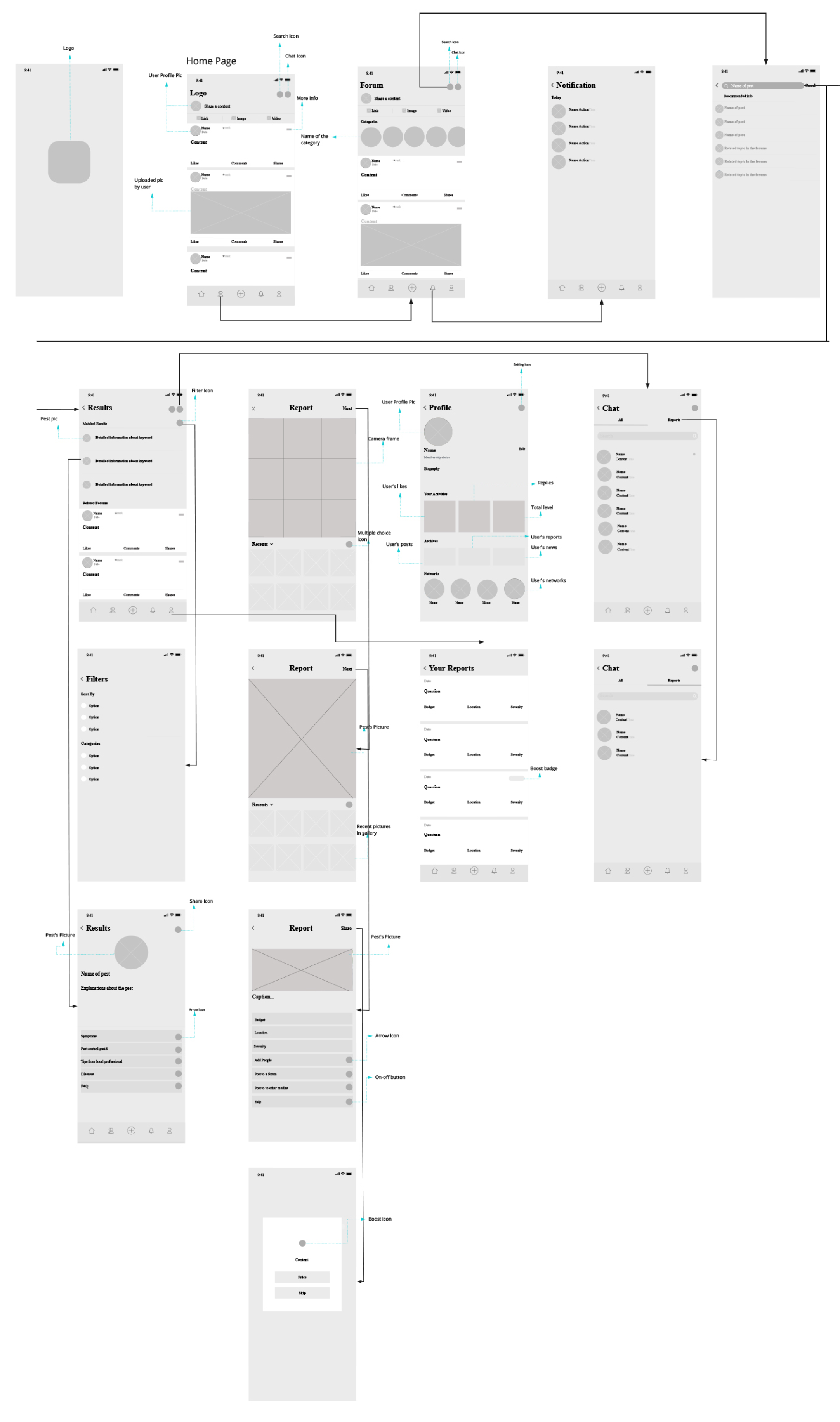
Prototype
First Iteration
We quickly designed the initial low-fidelity key flows and tested the screens with users.
Test
Refinements
After identifying key errors and usability issues, we simplified the application’s processes to improve the user experience.
Before
After
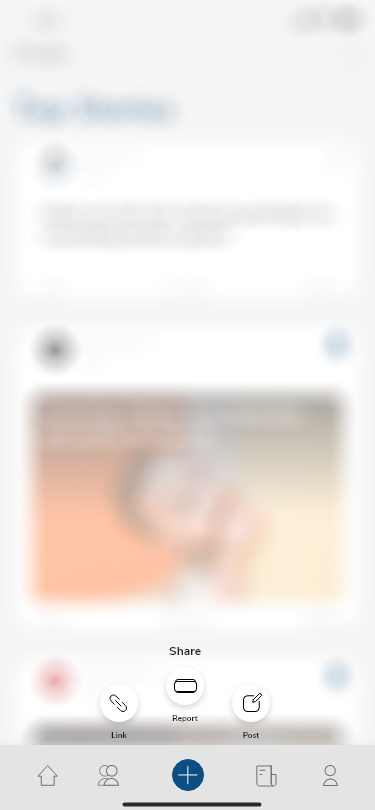
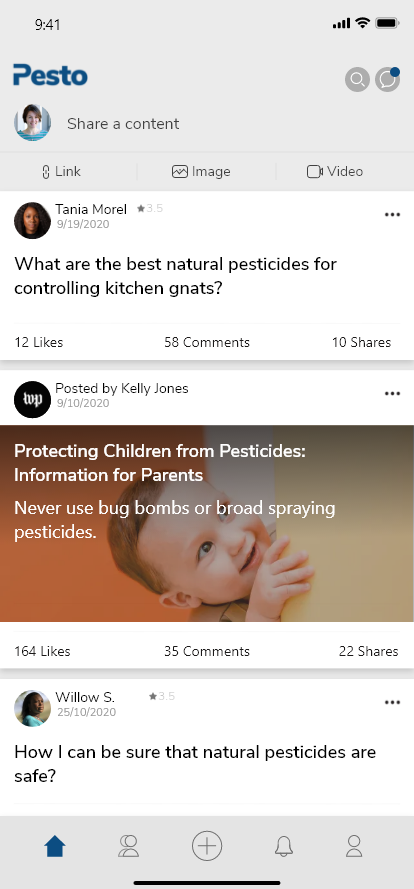
The new icon was confusing — users did not recognize its meaning or function.
The News page was redesigned into a Home page to simplify navigation and improve readability.
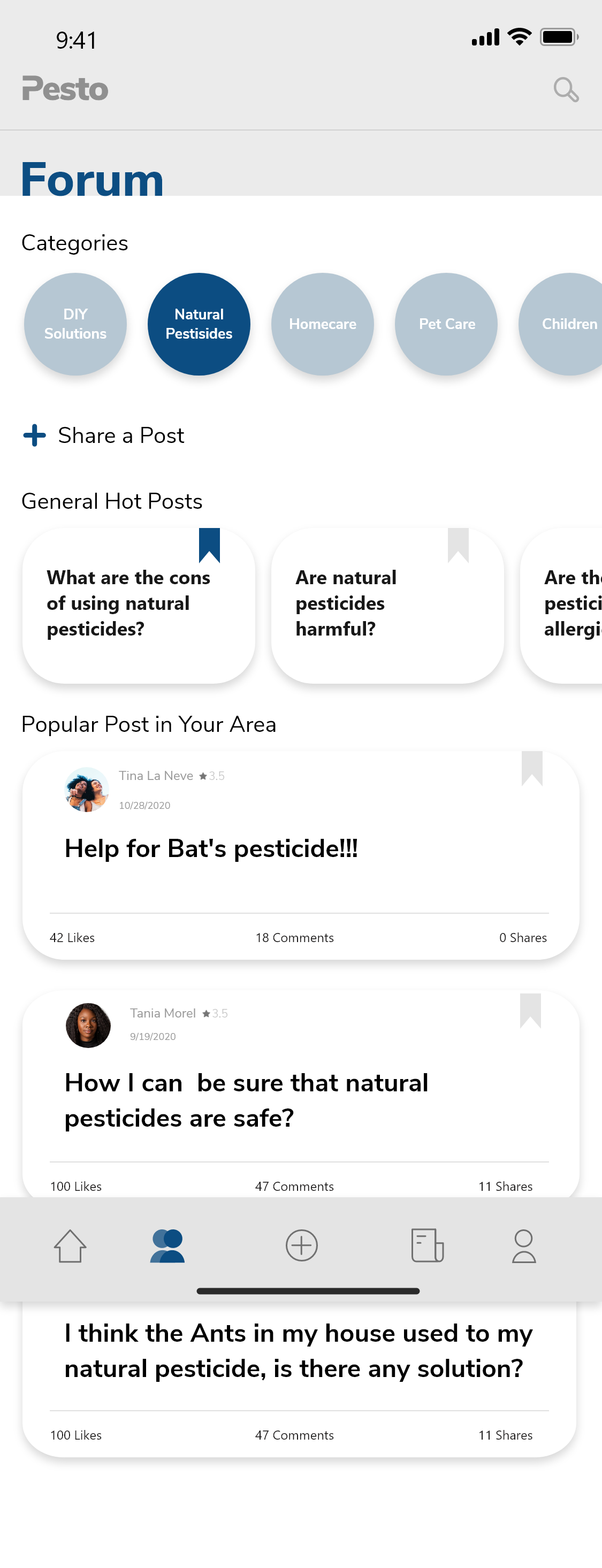
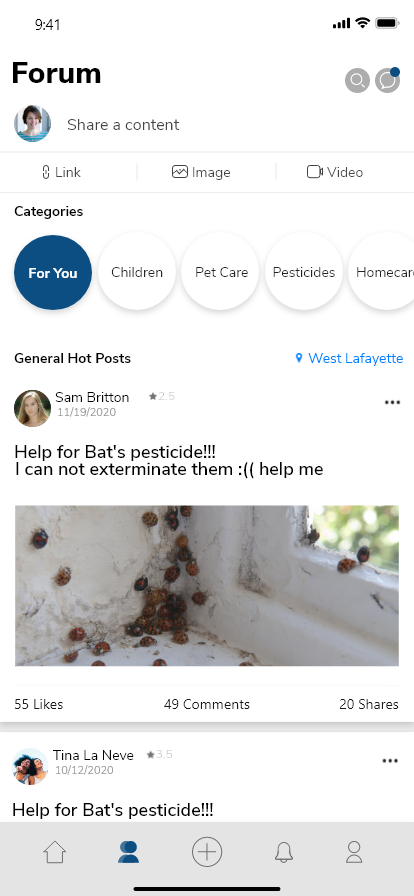
The “Share a Post” feature was clarified to offer three clear options: upload a link, an image, or a video.
The feature lacked visibility and was difficult for users to notice.
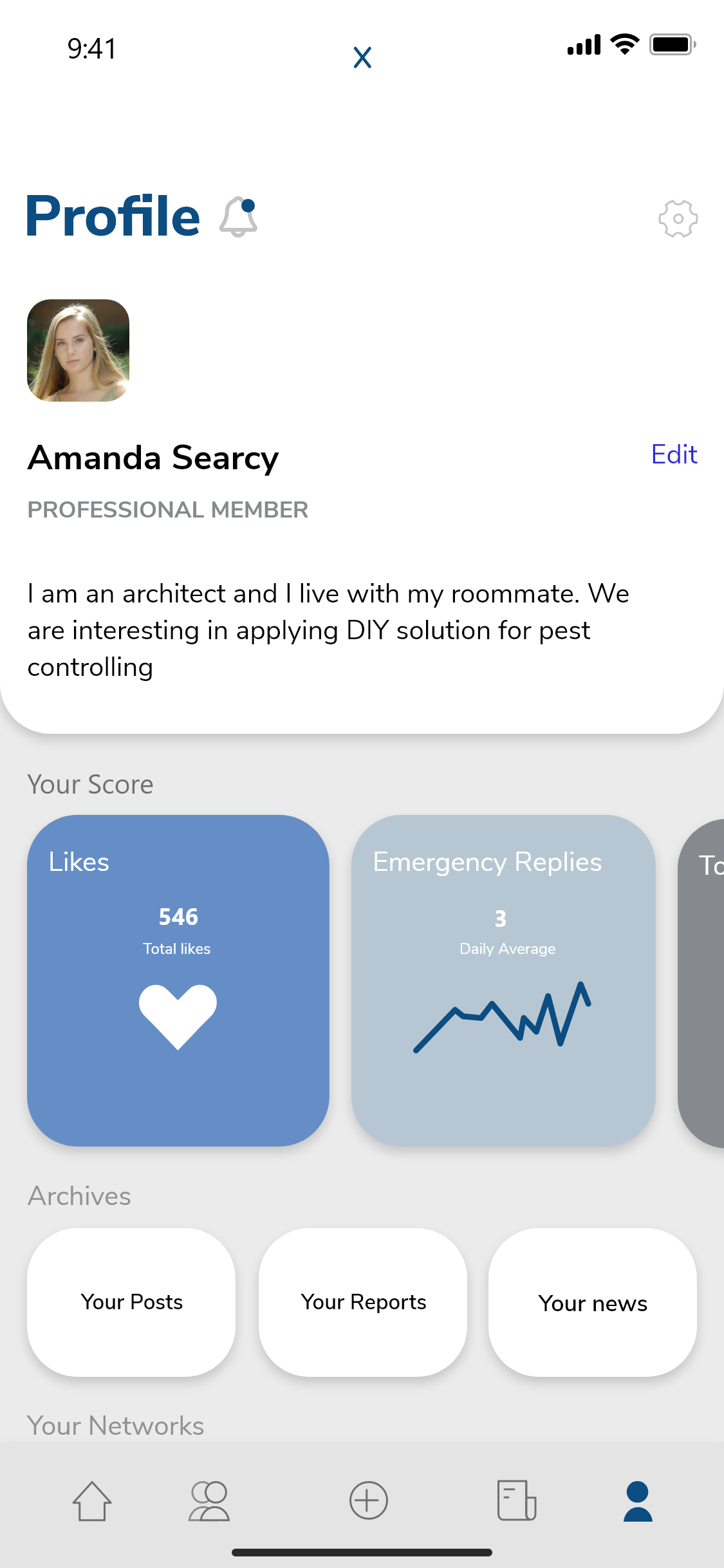
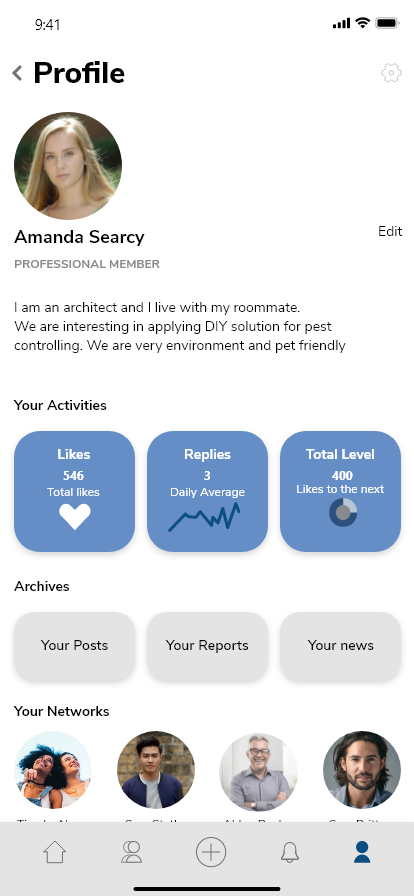
The notification icon was hidden and difficult to access.
Scorecards took up too much space, pushing networks down the page.
Activities were condensed to free up space for networks
The notification icon was moved to the main menu, giving users direct access to comments and replies.

Users struggled to identify the correct icon for creating a report, as other options caused confusion.
The link icon was separated from the report feature and placed at the top of the page as a fixed element.
The report feature was clarified and kept as a primary function.

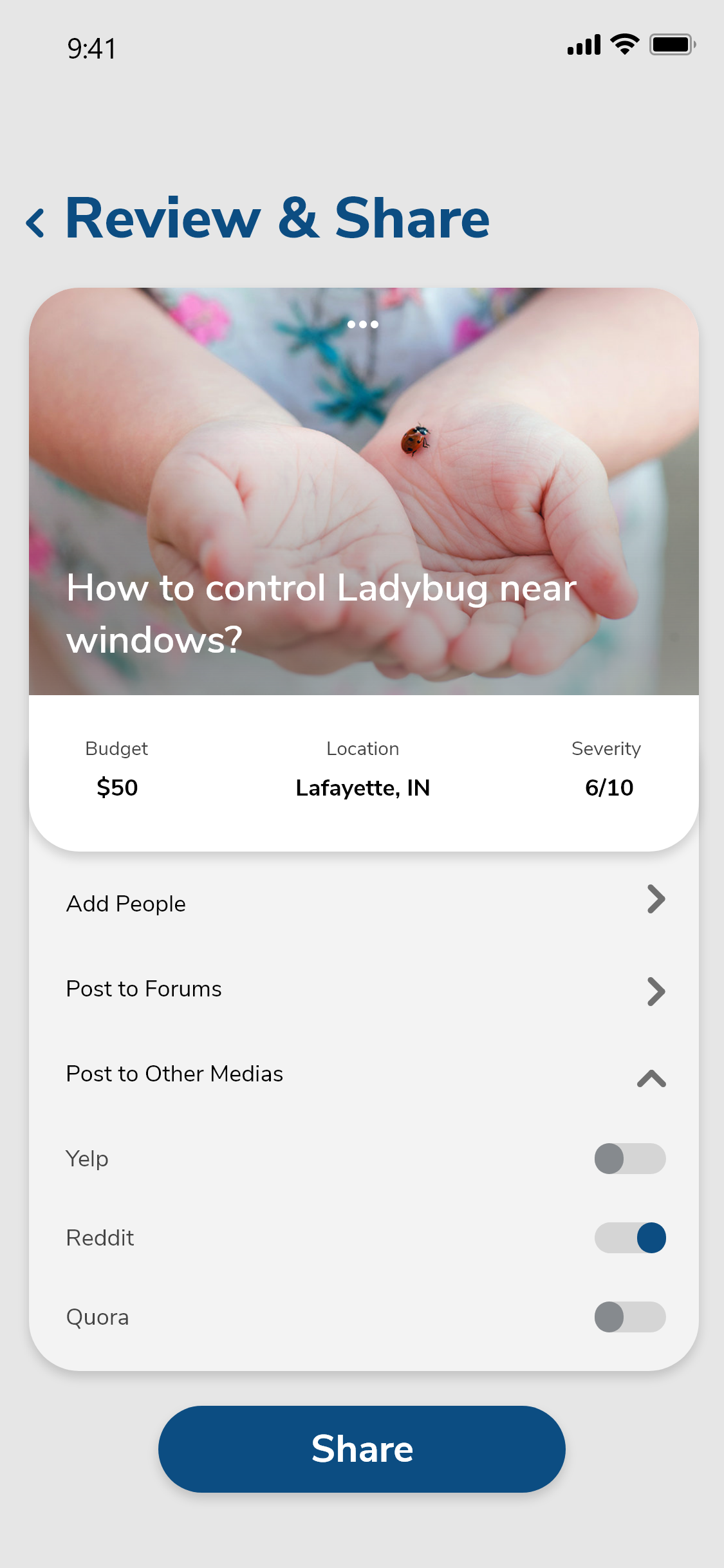
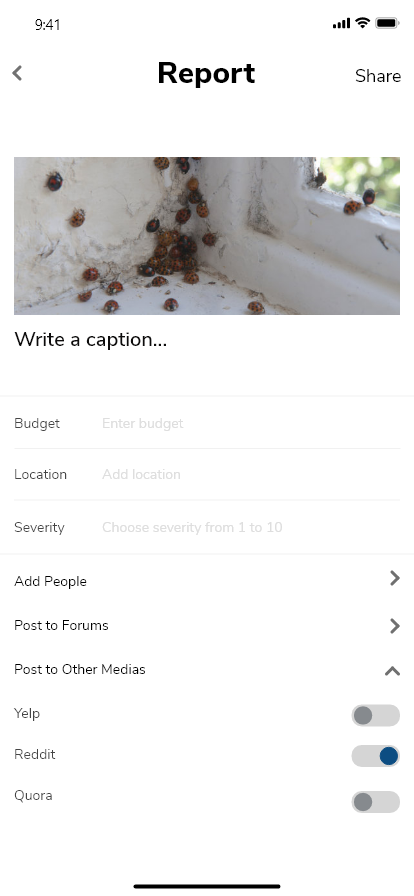
Users previously had to complete multiple steps to post a report.
Steps were streamlined and merged into a single flow to reduce friction.
Prototype
Final Design | Main Features
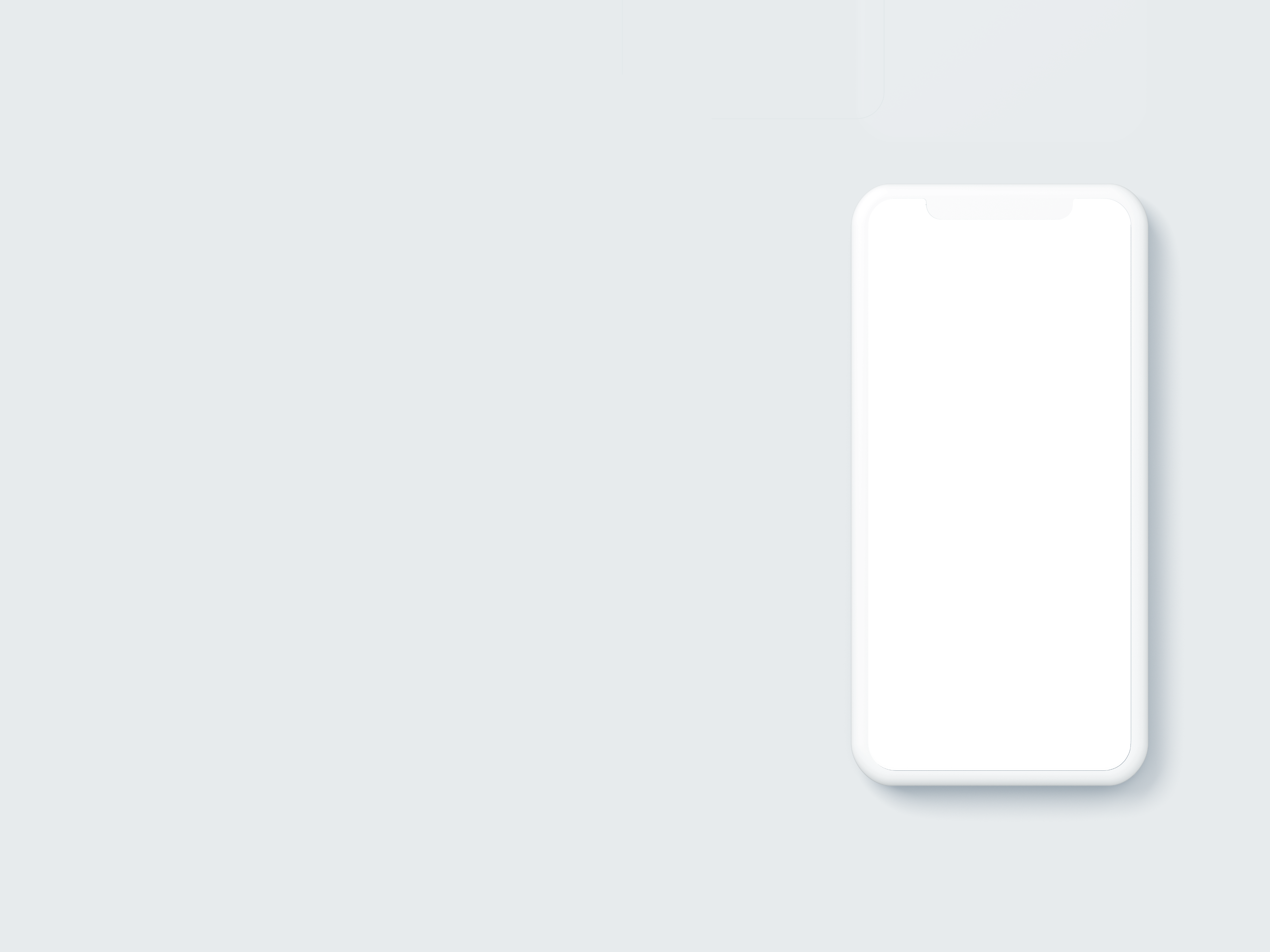







Search
Intelligent Search
The users can quickly identify the pest type by taking a picture of it or putting some keywords, and the application will bring up the matched results based on the user’s input and location. The user can find specific details of the pest and share them with others. The search feature also provides relevant information on the posts shared by other users.
Forum & Home Page
Posting a Content
The users can post their questions or any external links in the Forum. What they see in the Forum are the general hot posts published by local people, which are location-based, but the Home page includes worldwide posts. They have organized based on users’ favorite topics


Report page
Sending Reports & Boost Feature
The user can report pest problems on forums, contacts, and social media or seek a quick answer from local professionals.
Profile Page
Automated Scoring System
The users receive a score from the application based on their activity on the forum pages and the rating they receive from the other users. After passing a certain level, the user’s membership will transform to “Professional Member,” and the user can receive Boost requests from the other users to answer them and get paid.
Prototype
Typography & Color
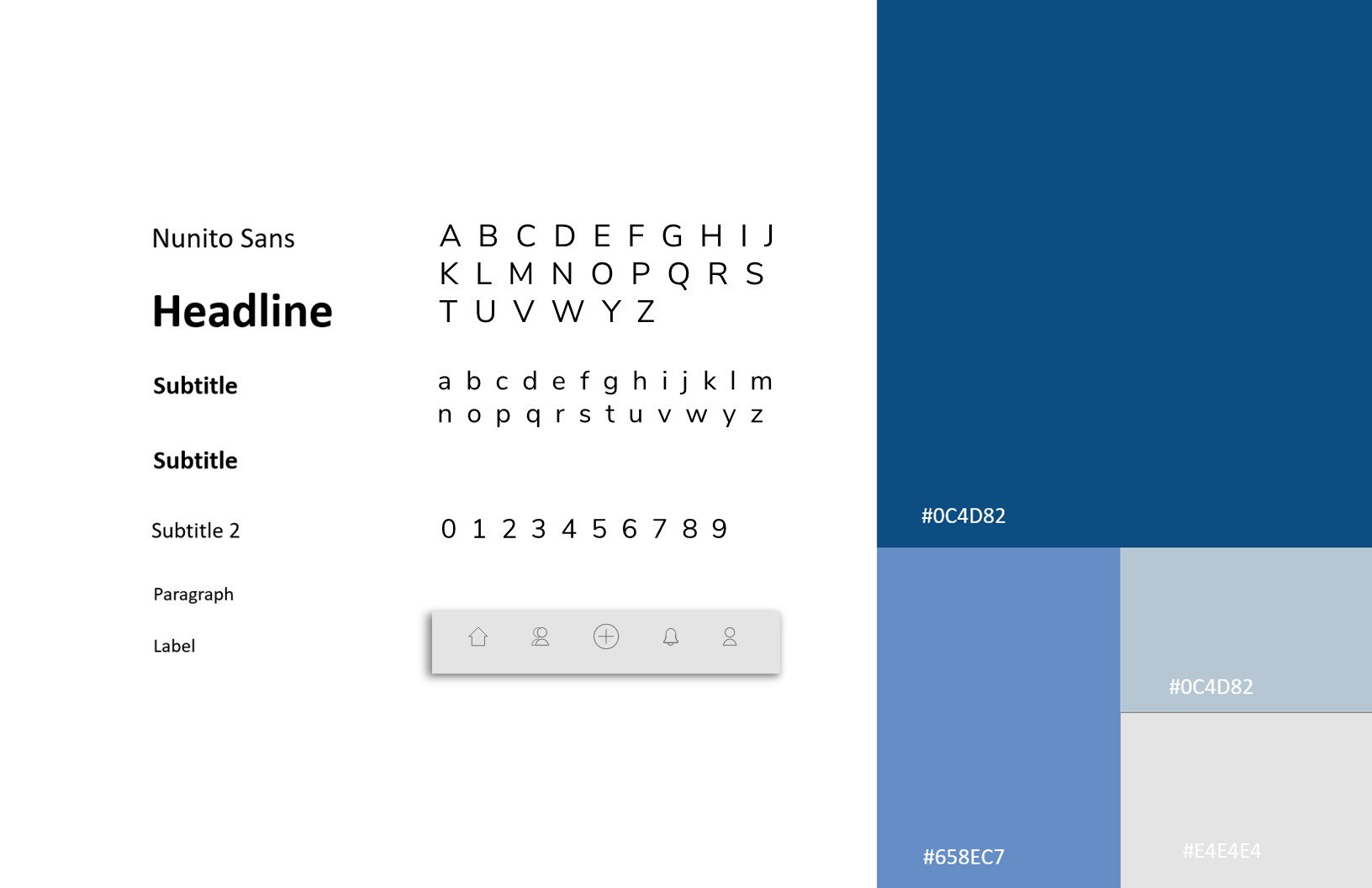

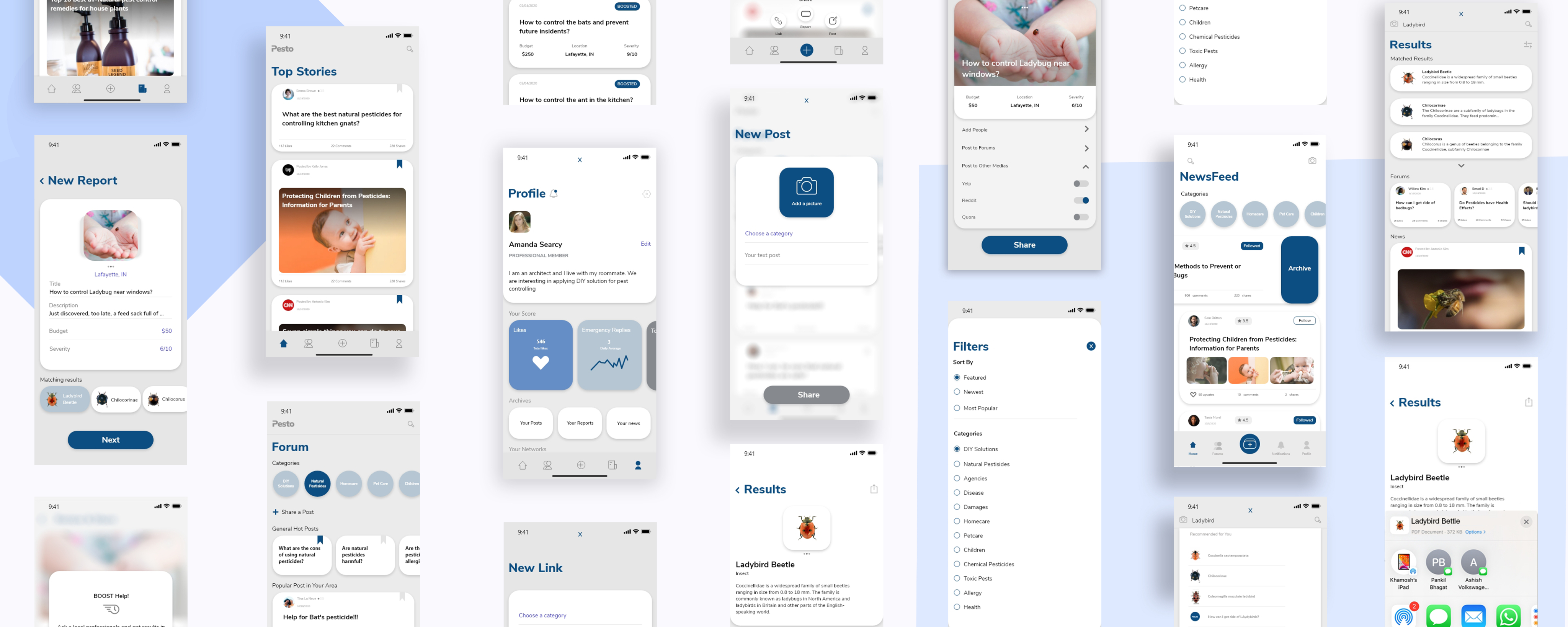
Ideation
Task flow
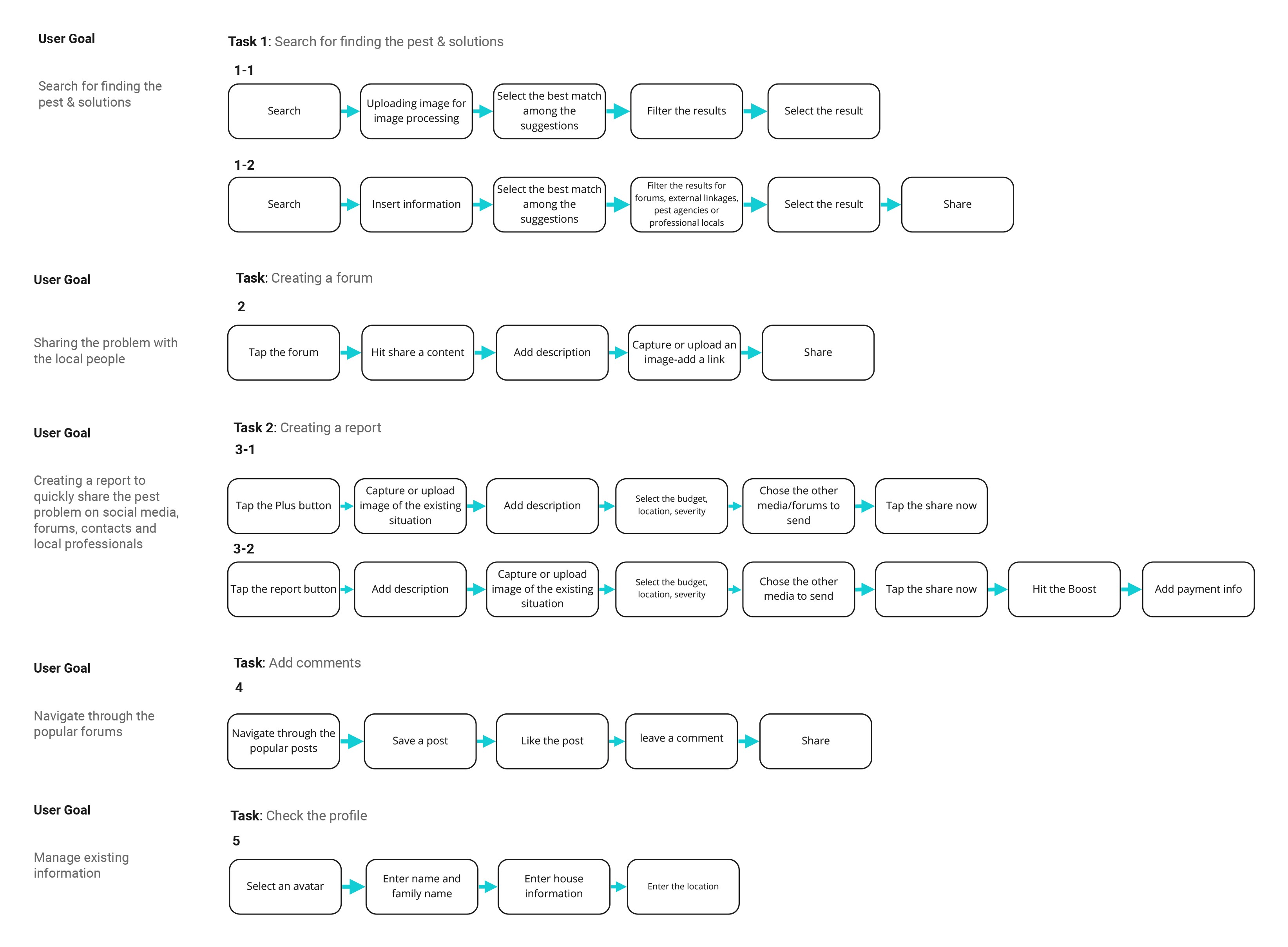
Analysis
Synthesis
The following insights are generated based on the primary and secondary research by grouping similar notes under similar headings.
